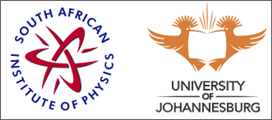Speaker
Would you like to <br> submit a short paper <br> for the Conference <br> Proceedings (Yes / No)?
No
Level for award<br> (Hons, MSc, <br> PhD)?
PhD
Apply to be<br> considered for a student <br> award (Yes / No)?
Yes
Main supervisor (name and email)<br>and his / her institution
Dr Tjaart Kruger, University of Pretoria
tjaart.kruger@up.ac.za
Abstract content <br> (Max 300 words)<br><a href="http://events.saip.org.za/getFile.py/access?resId=0&materialId=0&confId=34" target="_blank">Formatting &<br>Special chars</a>
Under high irradiation levels, photosynthetic organisms harvest more light than they can utilise in the process of photosynthesis. The excess light is often harmful and has to be dissipated through a process of photoprotection, also known as non-photochemical quenching (NPQ). NPQ is a complex and not well understood process. The pigments responsible for light harvesting consist of carotenoids and chlorophylls. The interaction between these pigments plays an important role in NPQ by producing thermal dissipative channels which compete with the efficient transfer of excitation energy. Energy transfer within light-harvesting antenna complexes can be probed using a technique known as femtosecond pump-probe spectroscopy. In this study the involvement of specific carotenoids in the major component of NPQ has been investigated for the light harvesting complex II (LHC II) of a mutated Arabidopsis species. Mutation of the species was done to control the carotenoids content to thereby have a better understanding of the role of specific carotenoids in NPQ. The main results of the study will be presented.

